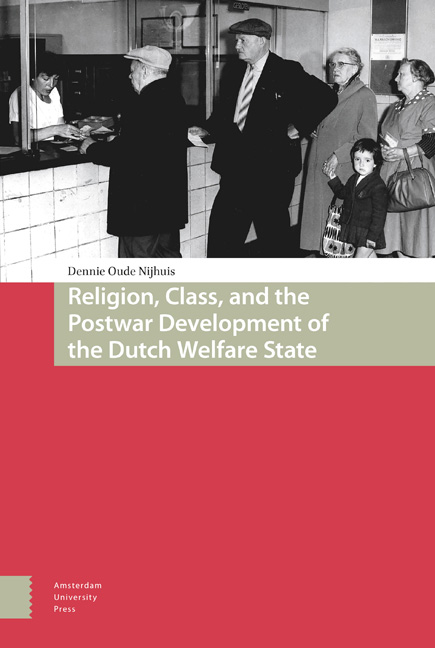3 - Welfare Reform in the Age of Austerity
Published online by Cambridge University Press: 11 December 2020
Summary
Approximately halfway through the Second World War, on 7 April 1943, a group of Dutchmen convened in London to be installed by their government-in- exile as members of a committee charged with the task of devising general guidelines for a future overhaul of the Dutch social insurance system. Named after its chairman, the senior government official and CHU-politican Aart van Rhijn, this so-called “Van Rhijn-committee” was to focus on two problems in particular. The first of these was the disorderly administrative structure of the Dutch social insurance system, which placed responsibility for its implementation in the hands of both private and public agencies, with partly overlapping tasks. The second was the strong inadequacy in the level and duration of Dutch social insurance benefits and the degree to which the population was covered by them. As was widely acknowledged, this inadequacy was more severe in the Netherlands than in many other nations.
The decision to create the Van Rhijn-committee was at least partly inspired by the enthusiastic reception of a British report on social insurance reform – by both the general public and the British war cabinet – some four months earlier. Popularly known as the “Beveridge report”, this document would prove very influential in directing the course of postwar welfare reform in the United Kingdom. The Van Rhijn report would prove much less important. Its main recommendation of creating a universal and unified social insurance system that would be largely administered by the state was discarded almost immediately after its publication in 1945. Unlike in the United Kingdom, there was to be no major overhaul of the Dutch social insurance system in the immediate postwar period; instead, the system would expand on a piecemeal basis and – at least initially – at an agonizingly slow pace. Those reforms that did take place in the immediate postwar period did little to reduce its complexity. Moreover, they only reaffirmed the Dutch welfare state's conservative reputation, because they left large holes in its social safety net and they closely followed actuarial principles.
The limited nature of welfare reform in the immediate postwar period can partly be attributed to a fundamental conflict over the organization and scope of the social insurance system.
- Type
- Chapter
- Information
- Publisher: Amsterdam University PressPrint publication year: 2018



